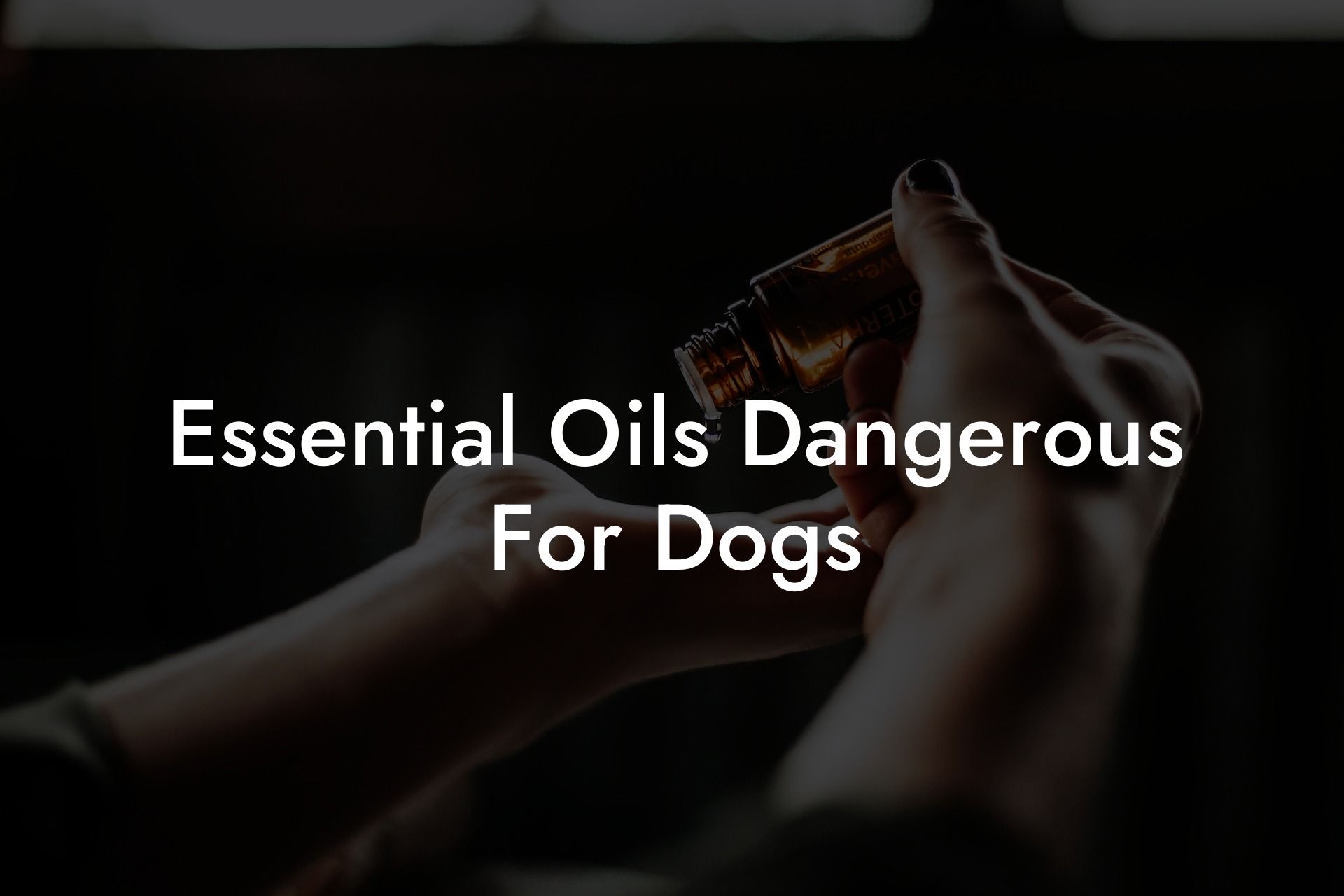Are you a pet parent who loves essential oils and aromatherapy? While you’ve experienced the many benefits of essential oils for your own well-being, you might be unaware that some of these oils can be dangerous for your beloved four-legged friends. In this guide, we will explore the potential dangers of essential oils for dogs, discussing which oils to avoid and how to use essential oils safely around your pets.
Table of Contents
How Can Essential Oils Be Dangerous for Dogs?
Dogs have a much stronger sense of smell than humans, which means they can be more sensitive to the effects of essential oils. The main concerns when using essential oils around dogs are accidental ingestion, skin irritation, and respiratory issues.
Accidental Ingestion:
- Dogs might be tempted to lick or chew on diffusers, bottles, or any surfaces with essential oil residue.
- Accidental ingestion can lead to poisoning, gastrointestinal irritation, or even liver damage, depending on the oil and amount ingested.
Skin Irritation:
- Essential oils can cause skin irritation, burns, or allergic reactions in dogs if applied directly to their skin or if their fur comes into contact with oil residue.
- Highly concentrated essential oils should be diluted before use, even when diffusing them in the air.
Respiratory Issues:
- Diffusing essential oils can cause respiratory irritation in dogs with preexisting respiratory conditions or in sensitive breeds with short noses, such as pugs and bulldogs.
- Strong or overpowering scents may also cause discomfort and stress for dogs, as their sense of smell is much more sensitive than ours.
Essential Oils to Avoid Around Dogs
Some essential oils are especially harmful to dogs and should be avoided in a pet-friendly home. The following is a list of essential oils known to cause issues in dogs:
- Tea Tree (Melaleuca)
- Wintergreen
- Pennyroyal
- Peppermint
- Cinnamon
- Pine
- Sweet Birch
- Ylang Ylang
- Anise
- Clove
- Thyme
- Juniper
- Yarrow
- Garlic
- horseradish
Please note that this is not an exhaustive list, and individual dogs may have sensitivities to other essential oils. Always research and consult with a veterinarian before introducing a new essential oil into your home.
Essential Oils Dangerous For Dogs Example:
Imagine you’re using a diffuser with tea tree essential oil in your living room to help you relax after a long day. Your curious dog sniffs the diffuser and, attracted by the scent, decides to chew on it. In doing so, he accidentally ingests some of the tea tree oil.
Shortly after, your dog starts to show signs of distress, such as vomiting, weakness, and difficulty walking. You quickly realize something is wrong and rush him to the veterinarian, who informs you that he has been poisoned by the tea tree oil. Had you known the dangers beforehand, you could have prevented this incident by choosing a safer essential oil to diffuse around your dog.
We hope this guide has helped you understand the potential dangers of essential oils for dogs and enabled you to make informed decisions when using these powerful botanical extracts in your home. Remember always to put your pet’s safety first, research essential oils you intend to use, and consult with a veterinarian when in doubt.
Feel free to share this article with fellow pet parents to spread awareness of the potential dangers of certain essential oils for dogs. Be sure to explore other valuable guides on Oshu Oils and check out our range of artisan essential earth oils that can bring harmony and balance to your life – safely and effectively.





















